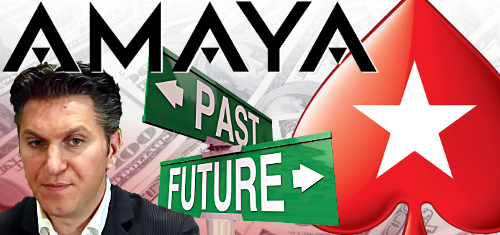 Canadian online gambling operator Amaya Gaming says it remains focused on developing its new verticals despite the intense media spotlight resulting from its absent CEO’s legal problems.
Canadian online gambling operator Amaya Gaming says it remains focused on developing its new verticals despite the intense media spotlight resulting from its absent CEO’s legal problems.
On Monday, Amaya released its results for the three months ending March 31, during which revenue rose 6% to $288.7m, adjusted earnings rose 8.7% to $123.4m and net earnings from continuing operations more than doubled to $55.5m.
It should be noted that this is the first report in which Amaya reported numbers in US dollars, and all comparative figures have been adjusted accordingly.
Amaya’s flagship PokerStars brand continued to set the pace, as poker accounted for 75% of real-money online revenue, while casino and the new BetStars sports betting product claimed a combined 21% share. Notably, that split was 89/6 in the same quarter one year ago.
Casino/sports revenue improved 267% in Q1 thanks to product improvements and launches in new markets. Amaya doesn’t yet break out its casino and sports revenue into separate columns, but CFO Daniel Sebag told analysts that sports accounted for less than $5m in Q1.
BetStars is now live in 41% of Amaya’s “addressable” markets and Amaya hopes to add both Italy and France before the June 10th kickoff of the Euro 2016 football tournament. Interim CEO Rafi Ashkenazi described the Italy launch as “quite imminent” while expressing less certainty re France, the timing of which he said depended on gaming regulator ARJEL.
POKERSTARS EATS ITS OWN
The other verticals’ gains came at a cost to Amaya’s core poker revenue, which fell 11% year-on-year, extending the cannibalization trend that marred the company’s Q4 report. Ashkenazi claimed not to be bothered by this effect, saying the company was “maintaining and moderating” the pace of cannibalization.
The company’s de-emphasizing of its soon to be extinct ‘B’ brand Full Tilt also contributed to poker’s decline, as did PokerStars’ ongoing ecosystem changes that have prompted an exodus of high-volume players.
This exodus contributed to a $26m decline in customer deposits from the Q4 figure but Sebag said this was a “one-time movement” that was “expected to normalize” over the rest of 2016. Sebag also claimed that the ecosystem changes meant that recreational players’ revenue was now “better than at any point in 2015 or even 2014.”
Quarterly real-money active customers totaled 2.5m, up 1.7% year-on-year, while PokerStars’ actives were up 4.2% to 2.4m. Amaya says its online casino actives were 469k, while BetStars claimed 169k actives.
Amaya also offered a snapshot of its Q2 performance to date, which included PokerStars launch in New Jersey’s regulated market. April’s revenue was up 11% year-on-year to $96m — $20m of which came from casino – although real-money poker revenue was essentially flat.
Amaya doesn’t intend to ramp up its casino marketing – which will include a VIP casino player program – until Q4, by which time it hopes to have its mobile casino product up to snuff. Most customer acquisitions are now coming via mobile and net deposits on mobile were described as “quite phenomenal.” Mobile customers are also proving easier to cross-sell into casino.
IN WITH THE NEW, OUT WITH THE OLD
The Q1 report was the first delivered by Ashkenazi, who took over temporary reins in late March following David Baazov’s decision to take an indefinite leave of absence while he fights the insider trading charges laid against him by Quebec securities regulators.
Sebag said the company spent $6m in the quarter on professional fees, the majority of which was connected with the Special Committee set up to deal with (a) the insider trading probe, and (b) offers to take the company private, including a bid by Baazov (pictured).
Amaya announced that Baazov and Sebag – the latter was cited as a person of interest in the insider trading probe but who has yet to be charged – had advised the company that they would not be standing for re-election to Amaya’s board of directors.
Sebag told analysts that his decision not to seek reelection was based on a desire to create “a more independent” board with “additional financial expertise.” Sebag said the move was “voluntary on my part” but no analyst was so bold to inquire as to whether the same could be said for Baazov’s decision to stand down.
Amaya also announced that Rational Group COO Israel Rosenthal would be leaving the company as of Aug. 1. No reason for the exit was offered, but Rosenthal was one of four execs named by New Jersey gaming regulators last October as the subjects of plenary investigations related to PokerStars’ activities prior to its 2014 acquisition by Amaya. One of these four, former Rational Group CEO Michael Hazel, announced his resignation one month after being labeled with the regulatory scarlet letter.






